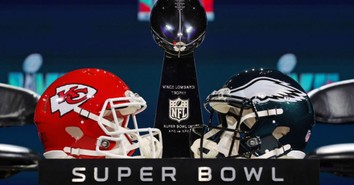What Hurricane Milton Teaches Us about Faith and Suffering
Hurricane Milton rapidly intensified into a Category 5 storm yesterday. The center of the monster storm could come ashore Wednesday in the Tampa Bay region, which has not seen a direct hit by a major hurricane in more than a century. Forecasters are warning of the highest storm surge ever predicted for the region.
Ahead of the devastation that is likely tomorrow, I want to think with you about some faith questions as we seek hope in these hard days.
If Every Wrong Chess Move Can Be Replayed
The English poet John Keats called our fallen planet a “vale of soul-making.” Yesterday, I suggested that God uses natural disasters to show us our need to “seek the Lᴏʀᴅ and his strength” (Psalm 105:4) and to grow in holiness as a result.
Inherent in this worldview is the claim that some suffering is necessary for spiritual maturity, much as a kite needs wind to climb higher. When Paul was afflicted with a “thorn in the flesh,” for example, he chose to “boast all the more gladly of my weaknesses, so that the power of Christ may rest upon me” (2 Corinthians 12:9).
It is also true (though not in the case of innocent suffering) that much evil in the world is the consequence of misused free will. As C. S. Lewis notes in The Problem of Pain, “The possibility of pain is inherent in the very existence of a world where souls can meet. When souls become wicked, they will certainly use this possibility to hurt one another, and this, perhaps, accounts for four-fifths of the sufferings of men.”
God must allow the consequences of freedom, or we will not be free. If every wrong chess move can be replayed, we have no game. The law of gravity cannot function if it is countermanded every time someone falls.
But why must this be so?
Responding to the “Utopia Thesis”
Philosophers Antony Flew and J. L. Mackie proposed the “utopia thesis,” claiming that an all-knowing, all-loving, all-powerful God could create a world in which people are free and grow to full spiritual maturity without the presence or necessity of evil and suffering. We cannot understand how he might do so, but we’re not God.
One response is that even God is not obligated to do what is logically impossible, such as making a rock so big he cannot move it or two mountains without a valley in between. It is illogical that even he could create a utopia in which humans are truly free, but they never misuse such freedom.
But here’s my problem with this response: such a “utopia” is precisely how the Bible describes heaven.
Revelation 7 pictures “a great multitude that no one could number . . . crying out in a loud voice, ‘Salvation belongs to our God who sits on the throne, and to the Lamb!’” (vv. 9–10). Worship, our expression of love and adoration for God, is the central activity of heaven. But love must be a choice, which requires freedom of will even in heaven.
At the same time, we are assured that in heaven, “death shall be no more” (Revelation 21:4a). Since “the wages of sin is death” (Romans 6:23), it’s hard to see how there can be sin in heaven without death as a consequence. Or how “there will no longer be any mourning, or crying, or pain” (Revelation 21:4b NASB) while sin is present.
So, if we will experience a “utopia” one day in which we are free but sin and suffering do not exist, why not now?
“I Believe; Help My Unbelief!”
Mystery is part of the Christian faith. We wonder, for example, how God can be three yet one, Jesus could be fully God yet fully man, and the Bible can be divinely inspired yet humanly written.
In the same way, I do not know an explanation for our suffering world that is free from all questions and mystery. But let me ask you this: Do you truly believe that our God is all-knowing, all-loving, and all-powerful? Then, by definition, he must always know what is best for us, want what is best for us, and therefore do what is best for us.
Now we have a choice: We can view his nature through the prism of events or view events through the prism of his nature. I choose the latter with the prayer, “I believe; help my unbelief!” (Mark 9:24). All the while knowing that there are truths in this world God cannot reveal to me because I am unable to comprehend them (1 Corinthians 13:12).
But this world is not all there is.
Max Lucado quotes a friend who says, “Everything will work out in the end. If it’s not working out, it’s not the end.” While the “utopia” of heaven raises questions about earth, it also offers wonderful assurance about life beyond this life. As Paul declared,
“I consider that the sufferings of this present time are not worth comparing with the glory that is to be revealed to us” (Romans 8:18).
How can we have the same confidence?
“When We Can Reach Beyond Our Fears”
Henri Nouwen observed: “We are fearful people. We are afraid of conflict, war, an uncertain future, illness, and most of all, death.” This is problematic because “this fear takes away our freedom and gives society the power to manipulate us with threats and promises.”
However,
When we can reach beyond our fears to the One who loves us with a love that was there before we were born and will be there after we die, then oppression, persecution, and even death will be unable to take our freedom. Once we have come to this deep inner knowledge—a knowledge more of the heart than of the mind—that we are born out of love and will die into love, that every part of our being is deeply rooted in love, and that this love is our true Father and Mother, then all forms of evil, illness, and death lose their final power over us and become painful but hopeful reminders of our true divine childhood.
Will you “come to this deep inner knowledge” today?
*Denison Forum does not necessarily endorse the views expressed in these stories.
Quote for the Day:
“Those who understand God’s sovereignty have joy even in the midst of suffering, a joy reflected on their very faces, for they see that their suffering is not without purpose.” —R. C. Sproul
Photo Courtesy:©Getty Images/Warren Faidley
Published Date: October 8, 2024
Jim Denison, PhD, is a cultural theologian and the founder and CEO of Denison Ministries. Denison Ministries includes DenisonForum.org, First15.org, ChristianParenting.org, and FoundationsWithJanet.org. Jim speaks biblically into significant cultural issues at Denison Forum. He is the chief author of The Daily Article and has written more than 30 books, including The Coming Tsunami, the Biblical Insight to Tough Questions series, and The Fifth Great Awakening.
The views expressed in this commentary do not necessarily reflect those of CrosswalkHeadlines.
For more from the Denison Forum, please visit www.denisonforum.org.
The Daily Article Podcast is Here!







